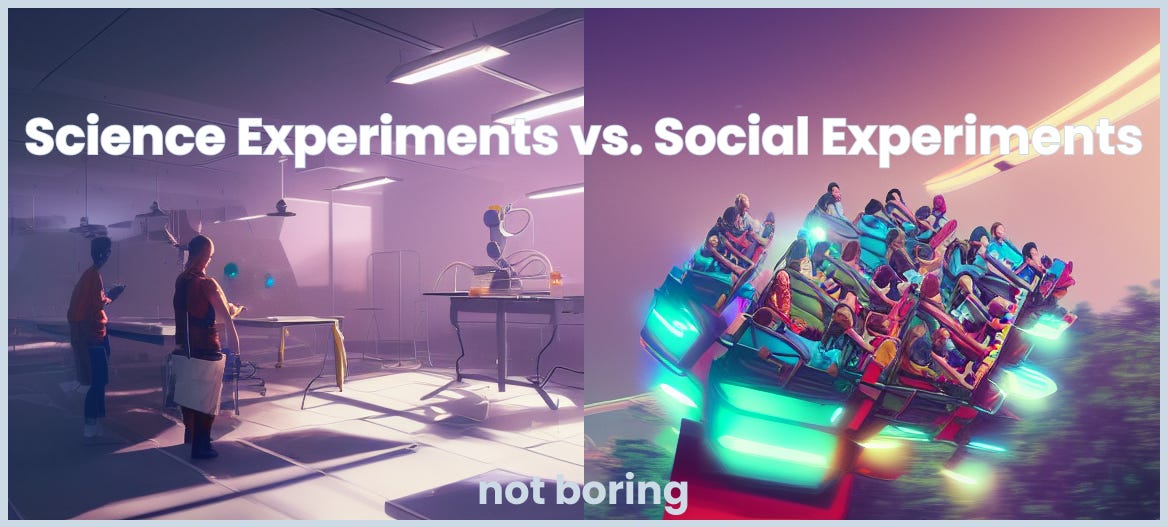People building social experiments have no such luxury. While technology plays an important role – blockchains, token standards, zero-knowledge proofs, and the like are all major technical innovations – people are a necessary component of the product itself. And people are messy, flighty, scammy, fickle, excitable, and all of the other wonderful th... See more

